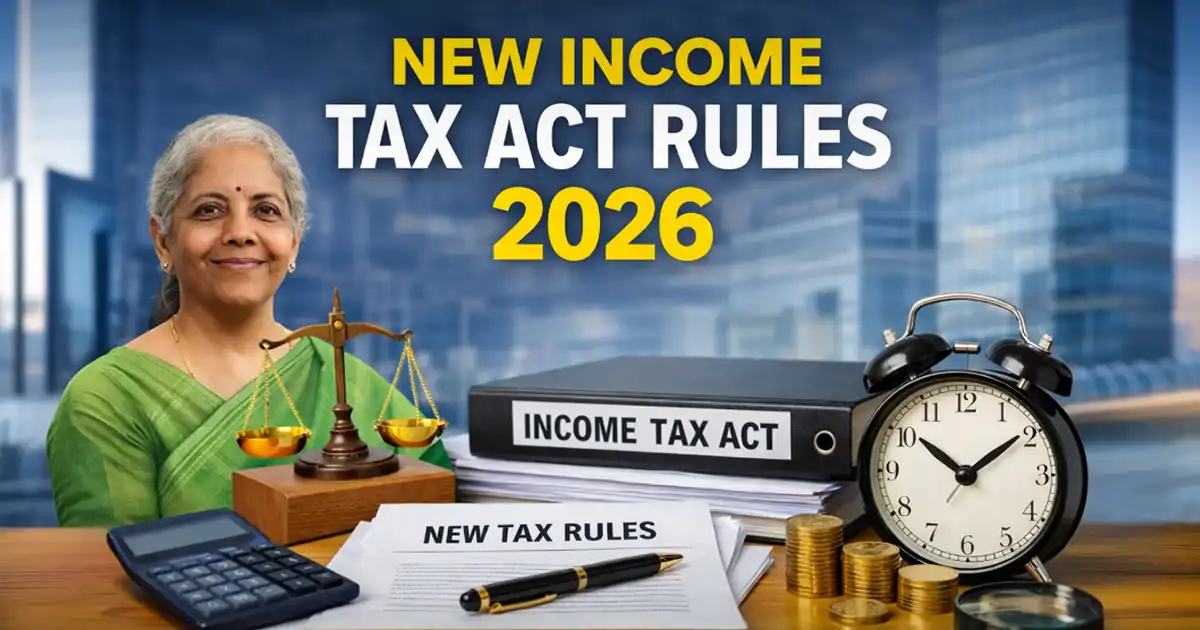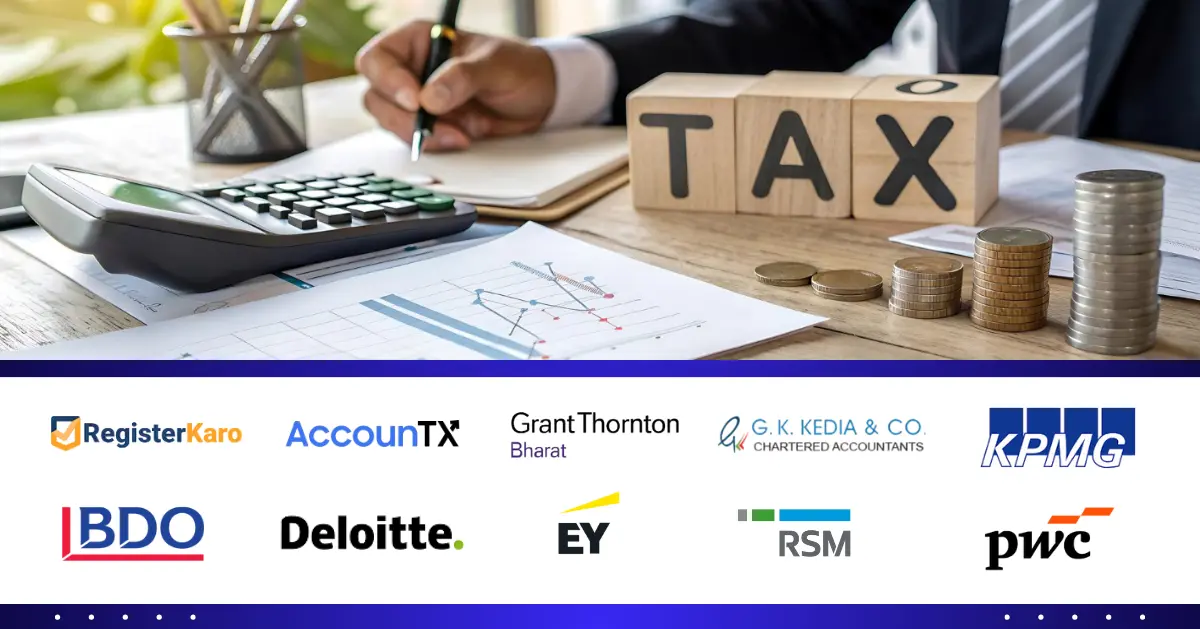
Section 54F of Income Tax Act: Saving Tax on Your Investment Profits
Selling an asset and making a profit feels wonderful, doesn’t it? However, you may have to pay tax on the profits in the form of capital gains. But the silver lining is, the tax laws provide options to save your hard-earned money on the gains.
Section 54F of Income Tax Act is one such useful provision. It assists in saving taxes from long-term capital gains. You can invest proceeds from the sale of an asset (not a residence) in a new home. With this rule, you can convert a huge tax liability into a smart investment.
What is Section 54F of Income Tax Act?
Section 54F of Income Tax Act grants you a tax exemption on profits from selling any long-term asset, provided it isn’t a residential house. This rule lets you keep more of your gains when you sell qualifying assets.
You can get a tax break on the profit you made from selling the asset. This rule is for individuals and families (Hindu Undivided Families or HUFs). It’s a way for the government to encourage people to invest in homes.
Capital Gain Exemption Chart: Section 54F
Here’s a chart summarizing the key aspects of Section 54F for quick reference:

Eligibility Criteria for Capital Gain Tax Exemption Under Section 54F of Income Tax Act?
To receive the tax-saving advantage under Section 54F of Income Tax Act, you must meet some conditions:
- Who is eligible: Regular taxpayers (individuals) and HUFs.
- What you sold: The sold item must be one that you held for over two years (or one year for certain shares/securities).
- What it can’t be: The sold item cannot be a house property.
- What you have to do: You have to acquire or construct a new residential home within the prescribed time frames.
Meeting these requirements is key to getting the long-term capital gain exemption.
Prescribed Timelines for Investment: Section 54F of Income Tax Act
Timing is very important when using Section 54F of Income Tax Act.
- For Purchase: You must buy the new house either one year before you sell your asset, or within two years after you sell it.
- For Construction: You must finish building the new house within three years from the date you sold your asset.
If you miss these deadlines, you might lose out on the long-term capital gain exemption.
New Amendment in Section 54F of Income Tax Act
A recent change in Section 54F puts a limit on how much investment in the new house qualifies for the tax break.
- The highest price of the new house that will be eligible for the tax relief is Rs. 10 crore.
- So, even if your new house costs more than Rs. 10 crore, the tax benefit under Section 54F of Income Tax Act will be calculated as if the investment were Rs. 10 crore.
This directly influences the overall long-term capital gain exemption limit.
Calculation of Exemption under Section 54F of Income Tax Act
Here’s how you figure out how much tax exemption you can get under Section 54F:
- Full Net Consideration Invested: If you use all the net money from selling your old asset to buy the new house, your entire profit from the sale can be tax-free. (Remember, the investment considered has a Rs. 10 crore limit)
- Partial Net Consideration Invested: If you use only part of the money, you get a partial tax break.
Note: Formula for Exemption: (Capital Gains * Amount Invested in New House) / Net Consideration.
Capital Gain Exemption on Sale of Land and Other Assets Under Section 54F of Income tax Act
Section 54F has wide applicability, especially for capital gain exemption on the sale of land.
- If you sell land (which is a long-term capital asset and not agricultural land exempt from tax) and reinvest the net consideration in a residential house, you can claim this exemption.
- This benefit extends to other non-residential long-term assets:
- Shares and Securities
- Gold
- Bonds and Debentures
The rule remains the same: Use the money from selling these items to get a new residential house.
Conditions Regarding Ownership of Multiple Residential Properties
Section 54F has some rules about how many houses you can own:
- On the Date of Transfer: You should not own more than one residential house (other than the new one being acquired) on the date of transfer of the original asset.
- Post-Acquisition Restrictions (Purchase): You must not purchase any residential house (other than the new one) within two years of the date of transfer of the original asset.
- Post-Acquisition Restrictions (Construction): You must not construct any residential house (other than the new one) within three years of the date of transfer of the original asset.
Failure to comply can lead to the withdrawal of the long-term capital gain exemption.
Utilizing the Capital Gains Account Scheme (CGAS)
If the net consideration is not utilized for acquiring the new house before the Income Tax Return filing deadline for that year, there’s a mechanism:
- Deposit the unutilized amount in the Capital Gains Account Scheme (CGAS).
- This should be done before ITR filing.
- The deposited amount should then be employed in buying or building the new home within the timeframe provided under Section 54F of Income Tax Act.
Effective use of CGAS preserves your eligibility for capital gains tax exemptions.
No Short-Term Capital Gain Exemption Under Section 54F of Income Tax
It’s very important to know that Section 54F is only for profits from long-term assets.
- This section does not offer a short-term capital gain exemption.
- Profits from assets you’ve held for only a short time are taxed differently.
Strategic Planning for Capital Gain Exemption
Section 54F of Income Tax Act can give you a huge tax exemption, but it is very highly loaded with conditions. Proper planning and professional advice can make the difference. RegisterKaro can help you ensure legal and effective tax exemption optimisation.
How Registerkaro can assist you:
- Optimal Timing: Determining when is the best time to sell your property and purchase/build your new residence.
- Proper Paperwork: Ensure that all your papers for the tax claim are immaculate.
- Handling the Limit: If it’s near the Rs. 10 crore long-term capital gain exemption limit, plan your investment.
- Utilizing CGAS Wisely: Helping you learn how to utilize the Capital Gains Account Scheme properly.
- Special Situations: Assistance with difficult ones, such as joint property or loan usage.
- Staying Updated: Keeping track of any new amendments in Section 54F.
📞Contact RegisterKaro and turn Section 54F of Income Tax Act into a smart money-saving tool and secure your capital gains tax exemptions.
Frequently Asked Questions
A: No, Section 54F requires you to hold the new house in your name (or jointly with specified relatives). Your share must meet the purchase timelines to secure the exemption.




